dementia and wandering: finding a way forward
"we know we will see more and more deaths." experts say an aging population and rising rates of dementia may lead to more cases of missing seniors.
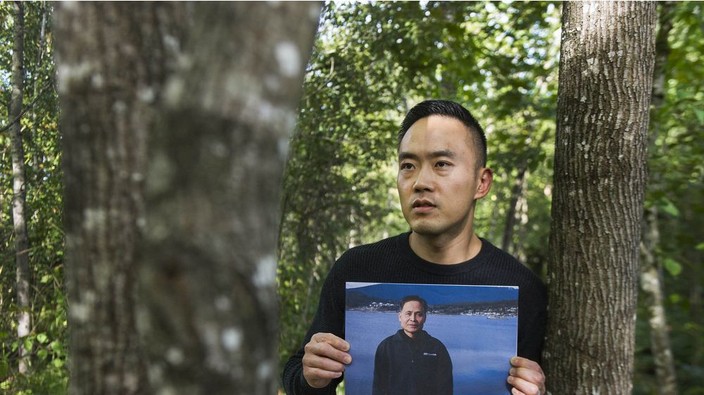
sam noh holds a pictures of his father, shin noh, who went missing in coquitlam in 2013. noh, who had alzheimer's disease, has never been found.
jason payne
/
png
by: glenda luymesthe day shin noh went missing, he was seen by a member of his coquitlam church who didn’t realize he might be lost.several others also encountered the retired pastor on that day, sept. 18, 2013, although his family didn’t learn of the sightings until several days later. by then, the odds of finding him alive and in good health had significantly diminished, said his son, sam noh.shin noh had been diagnosed with alzheimer’s disease several years earlier. he sometimes forgot dates, or when he last ate. out of respect for his privacy, his family kept his dementia confidential. on good days, they hoped he might be returning to his old self.“my family was very ill-equipped to deal with it,” said sam noh. “for years he’d gone for walks. if you tried to stop him, he could get quite upset.”when his dad didn’t return from his morning walk that morning, noh contacted police, although he privately wondered if it was too soon to sound the alarm.in the days that followed, searchers, including family and friends, chased every lead, including an unconfirmed report that homeless people living on burke mountain may have given the missing man food.but shin noh was never found.“it took a long time to realize there’s no way he could be alive,” said sam noh. “as a family, you have this hope that he might still be out there. after eight years, we want closure, but i think we might never get it.”noh’s family is not alone in their loss.in may 2020, an 88-year-old delta senior with dementia was found dead in a wooded area near the alex fraser bridge after he went missing from his nearby home. in 2019, two missing seniors with dementia, both from chilliwack, were found dead several months apart, while a maple ridge man with dementia remains missing.eight years after his father disappeared, noh has become a lay expert on dementia and wandering.b.c. silver alert, an advocacy group co-founded by noh and coquitlam search and rescue volunteer michael coyle, tracks missing seniors through police press releases. each year, on average, they issue about 29 alerts over social media asking their followers to be on the lookout for someone.in a major city like vancouver, there are sometimes multiple press releases per week, the vast majority ending with a positive outcome.on sept. 20, vancouver police asked for the public’s help to find an 80-year-old man who had been dropped off near vancouver general hospital for a medical appointment, but never made it inside. the following morning, another press release indicated he had been located.but while anecdotal evidence suggests missing seniors are a serious issue, a lack of data makes it difficult to know if the problem is increasing.“you need statistics to inform policy,” said noelannah neubauer, a post-doctoral fellow at the university of waterloo who helped spearhead the development of the international consortium on dementia and wayfinding. “what you’re seeing in b.c. is happening across the country as you have an aging population and there’s more people with dementia. but the data isn’t there.”there are more than 500,000 canadians living with dementia today, according to the alzheimer society of canada, with that number expected to rise to 912,000 by 2030. it’s believed that six out of 10 people living with dementia will wander at least once, and many do so repeatedly.in her work with first responders, neubauer said she’s been told missing seniors are quickly becoming the top category of missing people in many jurisdictions.“that’s scary because seniors often have health complications,” she said. “we know we will see more and more deaths.”
balancing safety and autonomy
as a police officer who reviews the files of many of b.c.’s missing people, cpl. jennifer sparkes has a unique perspective.across 45 rcmp detachments from the b.c. interior to the alberta border, sparkes sees about 3,000 missing persons files each year. about two per cent of those cases involve people with dementia. in 2021 so far, there have been 43 reports of missing seniors with dementia. all but one was concluded with the person located alive on the same day they were reported missing.“these cases are always treated as high risk and high priority because of the nature of dementia,” said sparkes, the missing persons coordinator for b.c. rcmp e division’s southeast district. “but i’m very encouraged when i look at the outcomes.”compared to other missing people, missing seniors are usually located quickly by police, family, caregivers or the public, while some return on their own.“this category of files also tends to have an excellent support system, which makes it so much easier,” she said. “many of the (other) people reported missing don’t have a support system.”in vancouver, these cases also tend to be resolved quickly, although there are sometimes several in a week.“we see about 12 per month, or three or four per week,” said vancouver police sgt. teresa wager.“it’s very weather-dependent,” added det. rebecca matson. “if the weather is nice, we’ll see numbers increase.”while cases usually end well, the two members of vpd’s missing persons unit said the experience is traumatic for families and caregivers.“it’s devastating,” said wager. “they’re upset, looking everywhere, printing posters.”for the missing person, the experience may be disorientating. wager recalled someone who walked almost 30 kilometres and seemed unaware they were lost. another person took transit to surrey.dangers, particularly in bad weather, include succumbing to the elements, becoming lost in an inaccessible place like heavy brush, or falling.yet experts agree autonomy is an important part of well-being for people with dementia.“mobility is a critical part of quality of life,” said habib chaudhury, chair of simon fraser university’s gerontology department. “unfortunately, it’s also where wandering becomes an issue.”in north america, we tend to prioritize safety and security over autonomy and quality of life, he said, pointing to locked dementia wards in some care facilities. in other countries, the scale tips in the other direction, with more innovative approaches to managing patients through building design or technology.understanding why someone might desire to wander can help caretakers to find a balance, said lillian hung, an assistant professor in the university of b.c.’s nursing department. many times, wandering is the result of an unmet need.“if caregivers have better skills to realize what is happening — ask them, can i help you find something, can you tell me more about what you’re looking for? — it may address that unmet need,” said hung.the person might be searching for a place or person from their past, or responding to a change in their environment, she said. they might feel restless and want to move, or have a physical need they can’t express.“wander denotes aimless movement,” said kim mckercher, a provincial coordinator with the alzheimer society of b.c. “to the individual, there is meaning behind it.”the society advises families to remove triggers, such as a jacket or keys from the front door, and to be aware of a person’s past routines, like when they used to leave for work, and engage them during that time.technology helpful but not foolproof
stigma around cognitive disorders can sometimes prevent people with dementia from discussing how they want their families to manage the disease as it progresses, said lili liu, a professor in the school of public health sciences at the university of waterloo who specializes in aging and technology.experts advise creating a care plan that uses multiple strategies to balance autonomy and safety.“do they want technology to be part of their care?” she said. if so, they might get in the habit of carrying a device that could be capable of tracking them in the future. consent is key. “some might say no camera, but i’m ok with sensors.”in 2013, police in the united kingdom conducted a trial to give seniors prone to wandering gps trackers. the program cost about $700 per month, but was anticipated to save thousands more by avoiding callouts.but the initiative was condemned by the national pensioners convention.“this is trying to solve a human problem with technology. rather than tagging people we need better social care out in the community,” general secretary dot gibson told local media.advertisement
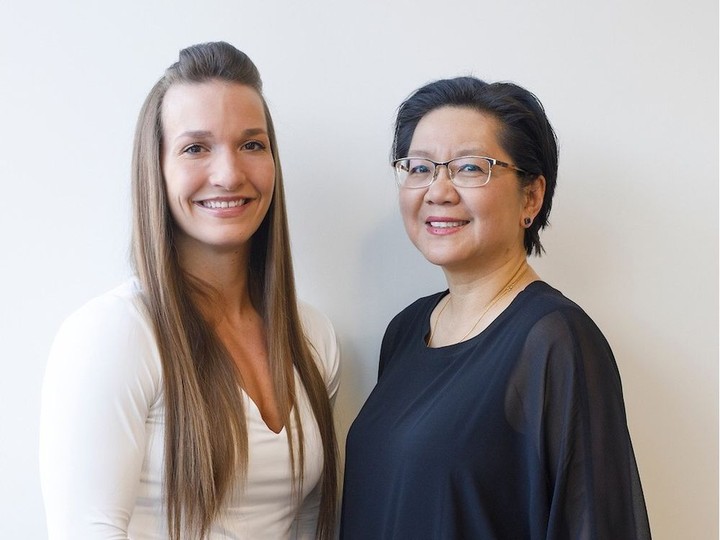
while technology is one strategy, it’s not foolproof, said neubauer. tracking devices often need to be charged, and the person must tolerate wearing one. gps can be inaccurate near tall buildings or on underground transit systems.when chilliwack senior john pop went missing in 2019, his daughter told media he usually wore a gps watch that provided alerts to family members. the watch had recently stopped working and they were in the process of getting a new one when he disappeared. the family also had a door alarm, but his wife was doing dishes in the kitchen and didn’t hear it when he left the house.pop’s body was found four days later near a local trail.another approach to keeping people safe involves providing police and searchers with more information.medicalert, a charity that promotes medical id bracelets, offers a blue version for people with cognitive issues. first responders can access a file of information submitted by the person or their family in advance, including medical information, current photographs, past history and triggers.all medicalert information is self-reported, not from hospitals, said president leslie mcgill. “we’d love to provide that access, but we’re not there yet.”since his father’s disappearance, sam noh has been advocating the b.c. government to create a geo-targeted silver alert system similar to the amber alert program, which could be activated by police in specific communities when a senior goes missing.during the 2020 provincial election campaign, premier john horgan met with noh and pledged to “continue to advocate” for the system.but some believe silver alert could lead to “alert fatigue” among the public, or might infringe upon a person’s privacy.“silver alert is not the ultimate solution,” noh admitted. “but we need to use all the tools available for a complex problem.”
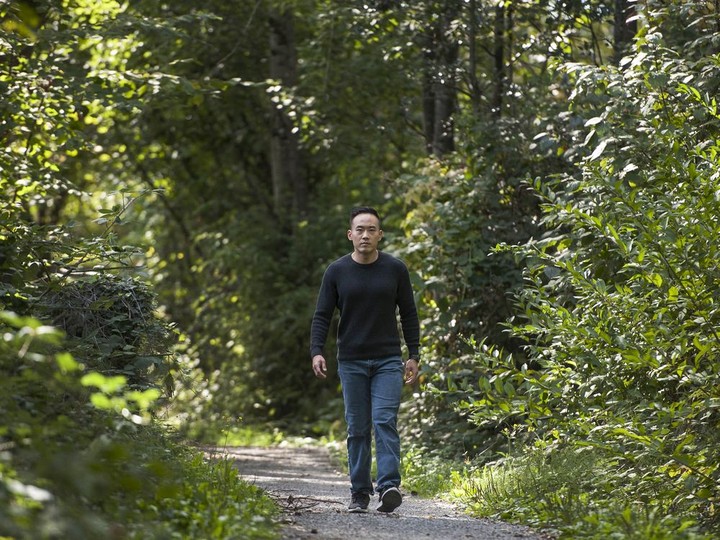
advertisement
dementia-friendly communities
perhaps one of the best ways to keep people with dementia safe while promoting autonomy isn’t a tool at all, but rather a societal shift that would make communities more “dementia-friendly.”mario gregorio, a dementia advocate who has worked as a co-researcher on several ubc studies, is proud that burnaby was among the first communities in b.c. to complete a “dementia-friendly action plan” with the alzheimer society of b.c. he’s participated in several “walkabouts” with city staff and first responders in an effort to teach them what it’s like to navigate the city as someone with dementia.“i’m very encouraged that people are listening,” he said.gregorio’s insights have helped inform the design of new public spaces to ensure “entrances really look like entrances,” sidewalks are clearly delineated from other spaces and that there are landmarks to make it easier to navigate, said margaret manifold, senior social planner for the city of burnaby. front-line staff have also received training to assist people with dementia.“i think it raises the level of awareness,” she said. “we want to be more inclusive of people with cognitive impairments.”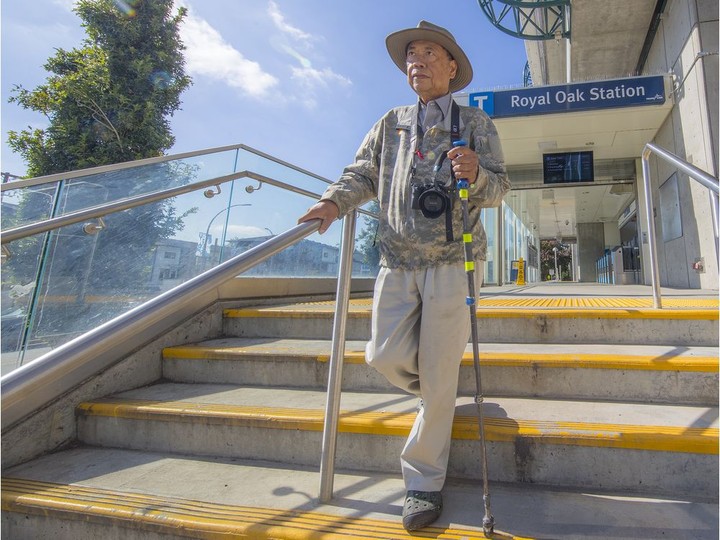
advertisement
a shift is also taking place in long-term care to recognize people with dementia have a right to independence.billed as canada’s first “dementia village,” the village langley doesn’t use the term “beds” or “facility” to describe its long-term care and assisted-living homes, said executive director adrienne alford-burt. within the seven-acre gated community, inspired by a similar concept in the netherlands, villagers are free to “self-direct” their movement and move freely around the community, visiting the hair salon or pub, according to their mobility and safety requirements.“we make sure people have the opportunity to control their day within a safe environment,” said alford-burt.
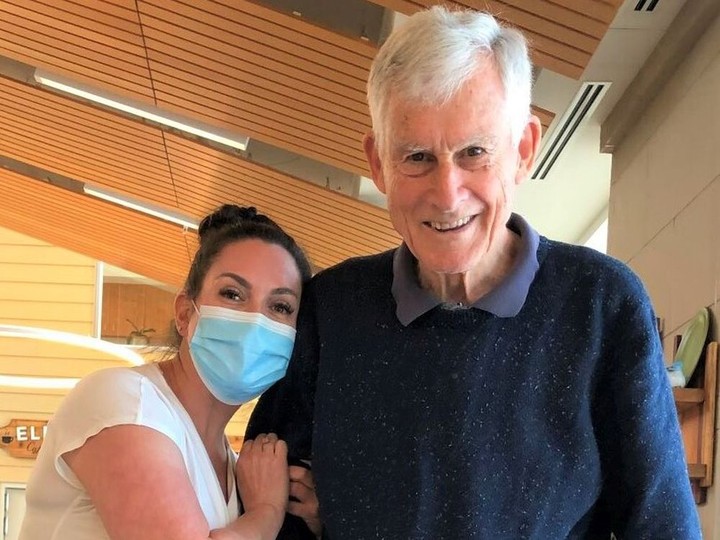
b.c. seniors advocate isobel mackenzie said wandering is sometimes the reason someone must move to long-term care, although some families choose to put safeguards in place, such as technology, to “mitigate some of the dangers.”a more “coordinated approach” to dementia involving various stakeholders and solutions could help people stay at home longer, she said.“i think there is more we can do with the public to give people greater confidence that someone is watching out for them.”
 10 minute read
10 minute read





